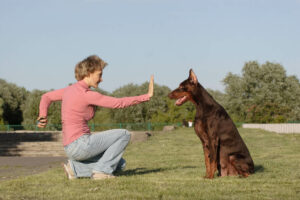Crate-training puppies can be tricky, especially when they are particularly needy. Sometimes hiccups occur during the crate training process, including training regression.
Most of the time, crate training regression is a sign of issues occurring within the crate training process. However, health issues and separation anxiety can also lead to a puppy regress in training.
Here we will be getting into all of the potential reasons for crate training regression in puppies, along with expert instructions on resolving this issue with your dog.
So let's get into it.
What is Training Regression?
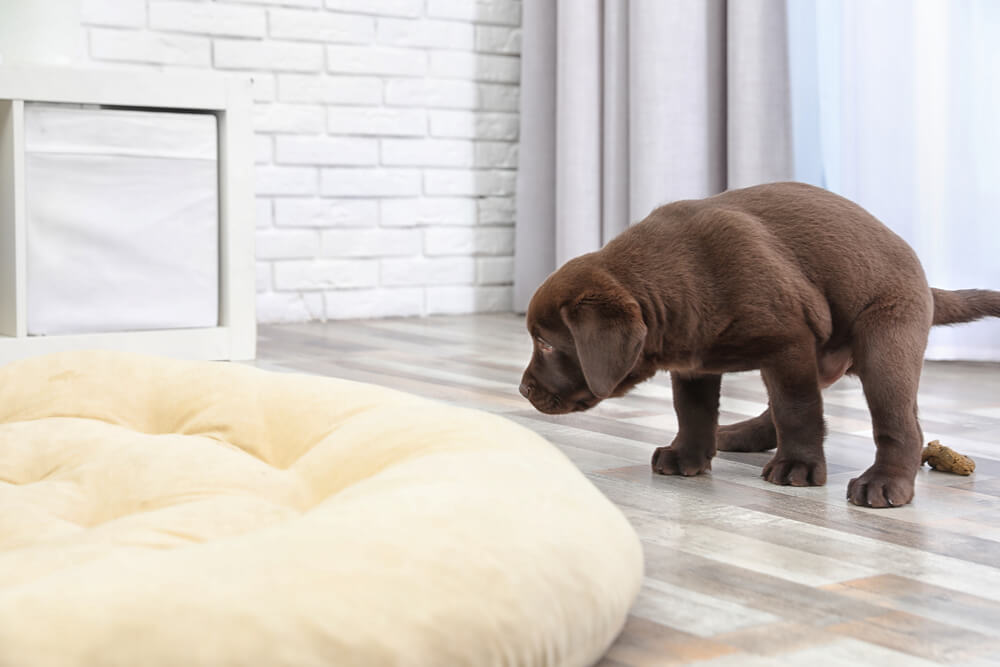
Training regression involves a dog suddenly reverting to old bad habits during the training process.
In crate training, this usually involves a puppy suddenly having trouble with being in its crate.
For example, a puppy experiencing crate training regression may bark, whine, or chew on its crate when left inside the crate.
It is normal for puppies to regress in training.
Training regression can occur in more than just crate training as well. Here are some other areas where puppy training regression is expected.
- Potty training
- Leash training
- Training out problematic behaviors (ie. barking, chewing, play biting, etc.)
5 Causes for Crate Training Regression
Before resolving crate training issues, you must discover the cause of your puppy's crate training regression.
Most of the time, a puppy regressing in crate training is a sign of issues with the crate training process itself. However, some other causes are also possible.
Here are the most common 5 reasons why puppies regress in crate training.
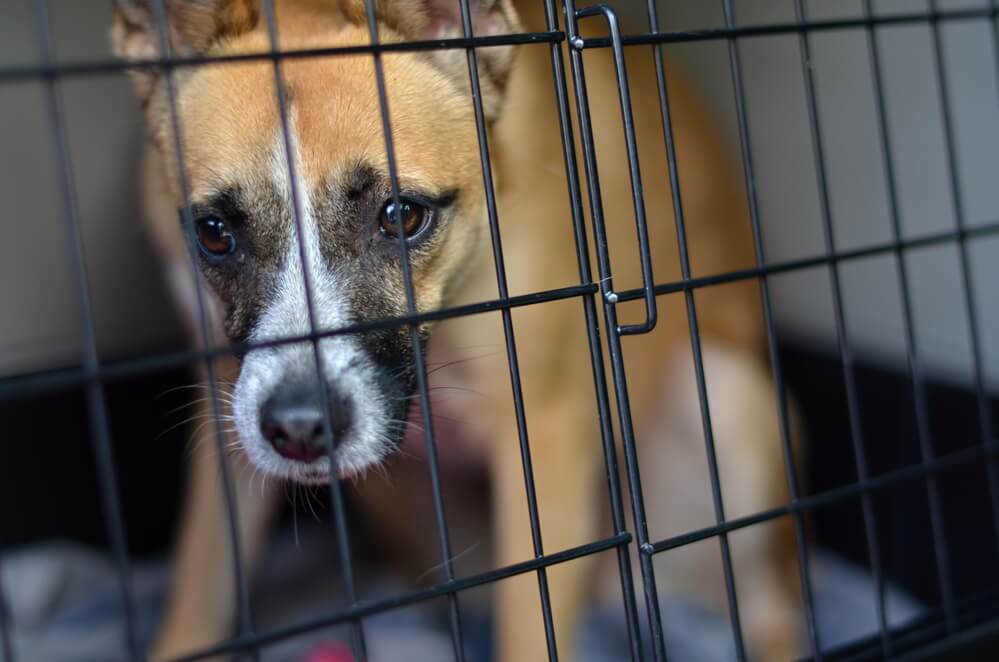
1. Crate Training is Moving too Fast
This is the most common cause of crate training regression in puppies that I have come across. Crate training is a process that can take a long time to get done correctly.
This is especially true if you have a puppy struggling to be alone.
Unfortunately, this also means that many puppy owners accidentally move too quickly with crate training. So, if your puppy is suddenly regressing in crate training, then returning to the basics will help. I will explain how you can do this later in this article.
2. The Crate Makes Your Puppy Uncomfortable
Of course, it could also be possible that your puppy is uncomfortable in their crate. You can make your dog’s crate a comfortable and inviting environment by placing a bed, blanket, or mat. Safe toys and other comfort items are also welcome.
It is never advised to use your dog's crate as a form of time-out or punishment. This can make the crate a very anxiety-inducing space, and they are likelier not to enjoy being inside.
Also Read: The 5 Best Dog Crates for Puppies
3. Separation Anxiety
Separation anxiety is an increasingly common problem in puppies and adult dogs alike.
Is your puppy okay with being in their crate while you are around but struggling when left alone? If this sounds like your dog, then separation anxiety is likely the culprit.
4. Your Puppy Picked up Some Bad Habits
Puppies are very good at picking up on what gets their owner's attention.
As a result, some puppies learn that crying and barking in their crate sends their owner running. While it can be difficult not to comfort a crying puppy, it can also establish bad habits.
Most of the time, puppies do this for attention rather than because something is wrong. This is especially true if your puppy is not stuck on anything and hasn't been in its crate for very long.
5. There's Another Problem Going On
Occasionally a dog may cry in their crate due to a medical issue.
For instance, sometimes UTIs may cause a dog to feel anxious about having an accident. It is a good idea to visit a vet if your dog is suddenly experiencing very unusual crate training regression.
This is especially true if your dog is also exhibiting unusual symptoms.
How Long Does Crate Training Regression Last?
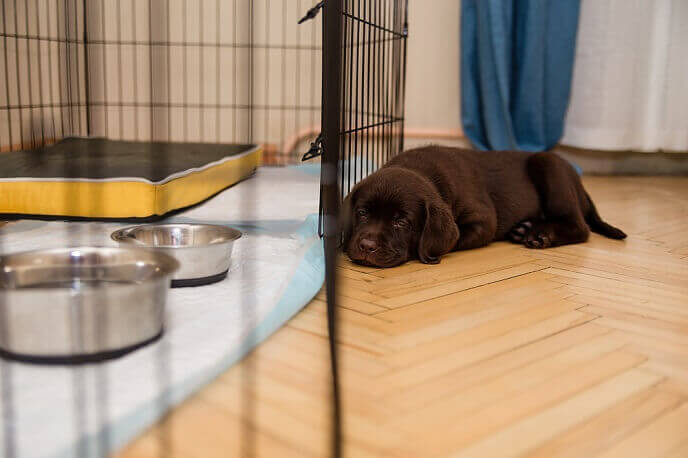
Crate training regression can last anywhere between a week to more than a month in some cases.
The good news is that it should improve once you have identified the cause and begun working on solutions.
How to Stop Your Puppy From Crying and Freaking Out in Their Crate
Once you have discovered what is causing your dog's crate training regression, you can start working on stopping it. I'm often asked "how do I stop my puppy screaming in crate for hours"?
Here is how you can prevent your puppy from crying and freaking out in its crate.
1. Go Back to the Basics With Crate Training
Usually, crate training regression is caused by owners jumping too quickly with the lengths of time that their puppy is left in the crate.
As a result, most puppy owners will need to go back to basics with crate training.
Here is a common scenario.
A new owner has worked up to where their puppy is fine in their crate for ten minutes. As a result, the owner believes that their puppy should be fine when they run out for 30 minutes. After ten minutes in their crate, the puppy starts to bark. This upsets the neighbors. The owner also believes that their puppy is experiencing crate training regression.
While some puppies may be able to make this time jump during crate training, not every puppy can handle this.
You likely need to carefully extend the time your puppy is left in their crate. Increasing by just a few minutes each time is a good rule of thumb, and some puppies may need even shorter time increments.
2. Make the Crate More Comfortable
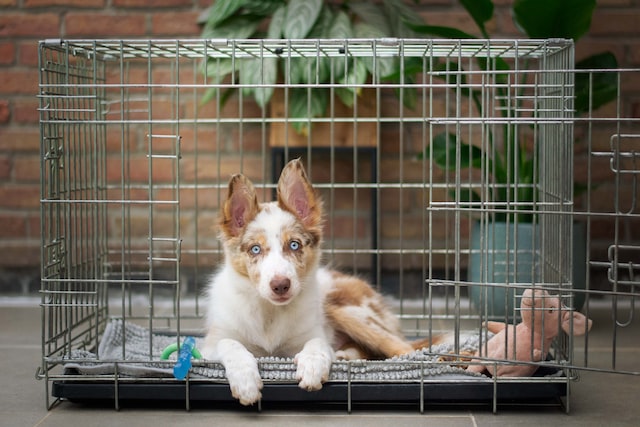
Photo by Ayla Verschueren on Unsplash
Making the crate physically more comfortable can help fix crate training regression. For instance, providing your dog with a toy that is safe for them to be alone with can help keep them entertained.
It is also best to refrain from using your dog's crate as a time-out space.
Choosing another area for time outs will prevent your dog from seeing their crate as a punishment. Puppy-proofed rooms or playpens your dog is not in very often are among the best time-out areas.
3. Ignore Your Puppy When They Try to Get Attention
While it can be difficult, it is best to ignore your puppy if they are crying in their crate for your attention.
Remember, as long as your puppy is safe in their crate and has not been in there for very long; they are most likely fine.
The best way to combat this issue is to only let your puppy out of their crate when they are quiet. Over time your puppy will learn that crying in their crate no longer gets them attention, and they will eventually stop doing it altogether.
4. Speak With a Professional
In some cases, speaking with a professional is beneficial for crate training regression. This is particularly the case if a potential health problem causes the regression.
However, it s also a good idea to speak with a qualified dog trainer or animal behaviorist for extreme cases of anxiety. This includes both separation anxiety and generalized anxiety. Consulting with a vet about these issues will also likely help the situation.



